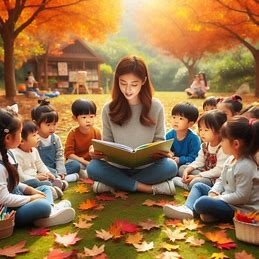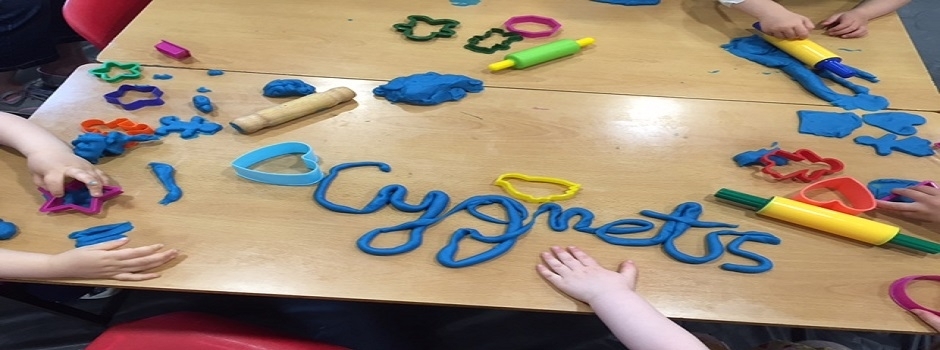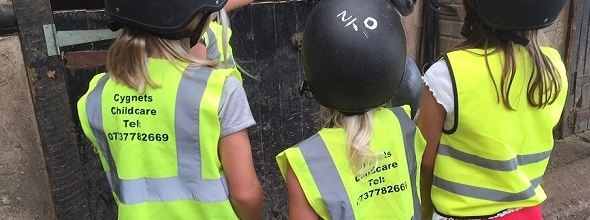Cygnets Latest Curriculum
Educator Curriculum Guidance:
To ensure that our children benefits fully from our program, we encourage all educators to actively engage with the curriculum. Please read below and familiarise yourself with the Cygnets educator Guidance for the relevant season to support our children's learning at Cygnets. The handbook also includes Cygnets' very own weekly story collection and recommended further readings (Parent Handbook have stories with pictures). The Educator Curriculum guidance and Parent handbook is password protected, and you can obtain the password from Rose Dias - the Education Lead, or Peter Dias - the Operations Manager. Please click on the link below and scroll down to the relevant Parent Handbook designed the season.
Cygnets Curriculum Guidance for Educators & Parents
Parent Handbooks:
To ensure that our children benefits fully from our program, we encourage all parents to actively engage with the curriculum. Please read below and familiarise yourself with the Cygnets Parent Handbook for the relevant season to support our children's learning at home. The handbook also includes Cygnets' very own weekly story collection and recommended further readings. The Parent handbook is password protected, and you can obtain the password from Rose Dias - the Education Lead, or Peter Dias - the Operations Manager. Please click on the link below and scroll down to the relevant Parent Handbook designed the season.
Cygnets Sample Curriculum - Autumn

Dear Cygnets Parents
Please read below and be familiar with the Cygnets curriculum guidance to support your child at home.
| Topic | Autumn 2024/2025 Expected targets for Cygnets children age 3+ from Monday, 23rd Sep 2024 - Friday, 20th December 2024 |
Autumn 2025/2026 This is the planned curriculum and expected targets for Cygnets children age 4+ from Monday, 22nd September 2025 - Friday, 19th December 2025 |
School Readiness Goals - Early Years Support |
|---|---|---|---|
|
Topic |
All About
Me ➢ My Family ➢ Houses ➢ My friends ➢ Keeping Healthy ➢ My brain |
Celebrations ➢ Toys ➢ The Nativity ➢ Celebrations (Christmas, Diwali, Hannukah) ➢ Seasonal Change |
Play
My First Day at School - BBC Bitesize Supporting-transitions-guidance.pdf (surreylocaloffer.org.uk) |
|
Celebrations and Festival |
Harvest Festival (Oct 1st) Halloween (Oct 31st) |
Diwali
(Nov 12th) Bonfire Night (Nov 5th) Remembrance Day (Nov 11th) Hanukah (Dec 7th – Dec 15th) Christmas (Dec 25th) New Year |
|
|
British
Values & Characteristics of Effective Teaching and Learning |
•
British Value: Individual Liberty • Characteristics of Effective Teaching and Learning: Engagement - Playing and Exploring |
•
British Value: Rule of Law • Characteristics of Effective Teaching and Learning: Engagement - Playing and Exploring |
Table Data |
|
Building
Social and Emotional Wellbeing Plan (to
promote holistic well-being and influence child self-esteem, confidence, and
ability to cope with challenges and novelty with a structured support plan that
is enjoyable and involves child, family and Cygnets team members) |
•
Social and emotional skills: attitudes: values: |
• Social interaction and sense of belonging skills: attitudes: values |
Table Data |
Schemas & Interests, personality, and experiences to complement exploration. E,g. Transporting (at different levels of development: First, children learn through the senses called sensorimotor stage-discovering their weight differences, how things around them can be transported from one place to another, their distances, journeys, mapping, and where things belong and secondly, children develop in to Symbolic representation stage where children use one thing to stand for another (e.g. using a leaf as pretend money) |
|
• Painting • Small World Play | |
|---|---|---|---|
|
Core Text
(Children wread with Early years practitioners to
gather knowledge and foster a love for books and numbers) | The Three Little Pigs Owl Babies What I like about me | Room on the Broom Kippers Toy Box The Elves and the Shoe Maker Jack Frost The First Christmas | |
|
Suggested Further Reading Texts (to foster a love for reading books and
practising numbers at home with family members. Research suggests that children
who regularly read at home and hear more vocabulary can read early and there
can be a 'million-word gap' for children who aren't read to at home. ) |
•
I Like Myself •
It’s Okay to be Different • We all Have Different
Families • I’m Starting Pre School Learning •
The Paper Dolls •
No Matter What •
All about me
•
My Body |
•
One snowy night • The little Christmas
Tree • The Lost and Found • Is it Christmas Yet? •
I’m a little Firework • Fireworks Sense Poems •
Stickman • Jolly Christmas Postman •
The Christmas Story •
Meg and Mog
•
Winnie the Witch |
Table Data |
|
Suggested Rhymes, Poems, Songs |
•
Daddy Finger •
We Are a
Family •
Skidamarink A Dink A Dink • This Is The Way We Make Friends • Healthy habits |
•
When Santa got
stuck up the chimney •
Jingle Bells •
Christmas Pudding |
Table Data |
|
Vocabulary & Role Play to remember and do
more |
• Autumn Words: Autumn Leaves, Pumpkin, Harvest, Acorn, Scarecrow, Windy, Sweater, Apple, Wasp, Nest •
Three
Little Pigs or take child
lead Vocabulary: Brave,
Mother, Brothers, three, Bold, Big, Little, Goodbye, Bad, Good, Sharing, heavy,
load, house, straw, sticks, brick, leave, high, set off, creeping up, help,
growl, growled, turnips, 5 O’Clock, angry, crash, splash |
• Autumn Words: Crisp Bonfire Corn Hayride Mushroom Rake Thanksgiving Lantern •
Elves
and the Shoemaker or take
child lead Vocabulary: Cygnets
educator to decide based on the child interested book choice. Role Play starting Phrases to wonder: |
• Autumn Words: Maple, Chestnut, Gourd, Cider Hedgehog Foggy Pinecone Harvest Moon |
Communication and Language - Prime Area.
|
Pre School Skills Developed |
I know how
to listen to stories, and I can remember much of what happens. I can respond to stories, songs and rhymes by
joining in. I
can sing rhymes and look at picture books. |
I can sing a large repertoire of songs with interest and engagement. |
Primary School Readiness End of Year Goals Long Term IMPACT I understand questions or instructions that have two parts, such as “Get
your coat and wait at the door.” I am able to talk about rhymes and books and tell a story. I use longer sentences of 4 -6 words. I use talk to organise my play and myself:
“Let’s go on a bus, you sit there, I will be the driver.”
I can listen attentively and respond to what I
hear. |
|---|---|---|---|
| Pre School
Knowledge Gained (Cygnets Childcare Intention: to foster effective communication and language for children's holistic growth through simple, meaningful interactions and exploration. language rich role play, jokes, mime games, characters, story structure understanding, clear speech, simple instructions and develop listening skills | I know how to follow instructions. I know how to listen attentively to stories, songs and rhymes. | I know how to use a wide range of
vocabulary I know how to answer questions or instructions that have two parts, such as: “Get your coat and wait at the door.” I know how to answer why questions, like: “why do you think the caterpillar got so fat?” | |
| Home Learning Recommendation | |||
|
Parent say/ influence
on the Cygnets Curriculum | |||
|
Child say/ influence on the Cygnets Curriculum | |||
SEND/ EAL or other Special Requirements |
Personal, Social and Emotional Development – Prime Area
| Pre School
Skills Developed (Cygnets Childcare Intention: to build skills that contribute to overall well-being, success, and positive interactions with others. these skills impact various aspects from childhood to adulthood. Ie. academic and career success to persist in challenging tasks and seek help effectively, healthy relationships filled with self-awareness, self-management, and empathy, positive life outcomes predicted at age 25, teaching and learning opportunities to equip manage daily challenges, make informed decisions and thrive in various contexts |
I
can select and use activities and resources, with help when needed. I can wash my hands independently. |
I can follow the routines and rules without an adult needing to remind
me. I am becoming more
outgoing with unfamiliar people, in the safe context of my setting. |
Primary School Readiness End of Year Goals I play with at least one or more children, extending and elaborating my
ideas. I follow rules and can understand why they are important. I can talk about my feelings using words like: happy, sad, angry and
worried. I can share and take turns in a group. I am independent when meeting my own care needs such as: brushing teeth,
going to the toilet, feeding myself and washing my hands. |
|---|---|---|---|
|
Pre School Knowledge Gained School readiness by fostering a positive disposition to learning and help to adapt to new environments, make friends, and explore confidently. nurturing PSED sets the foundation for healthy relationships, resilience and lifelong learning. Career Career readiness by influencing introducing soft skills and empathy and building relationships and working together within a team to meet/ complete a shared target under manageable challenging situations while sharing and caring within a team. |
I know how to follow routines and rules in nursery. I am developing my sense of responsibility and
membership of a community. |
I know why rules in nursery
are important. I know how to be a good friend. | |
|
Ethical Development and working in partnership in early years Matters –
Focus Area Emerging skills during age 2-8 in awareness of concepts like reciprocity, compassion, and understanding others’ perspectives. These intentions will also reflect Code of Ethics in Early Years Eduaction - Layout 1 (early-education.org.uk), Ethics in Early Years Education – TeachKloud |
Under Construction Child: Understand we all have a right to be safe and happy and able to
associate some rights to different
colours Family: Parents to learn about child rights to develop relationships of mutual
trust with positive, open and honest communication. Summary of Child rights and why they matter (unicef.org) Our Community: Learn about the communities we work with their priorities and needs and
ensure that our work with the children reflects these. |
Under Construction Child: Understand when I need help I can ask an adult to help me and when
adults need my help I can help them Family: Accept family right to take decisions and be involved in child’s
education journey Our Community: Promote shared and informed aspirations among communities which benefit children's
happiness, health, enjoyment
and wellbeing. | |
|
Home Learning recommendation Here are some enjoyable and
suitable activities to enhance personal, social, and emotional development for
children aged 3 to 6: These activities not only
support personal, social, and emotional development but also make learning
enjoyable and engaging for young children. If you need more specific ideas or
have any particular interests in mind, feel free to ask! |
|
| |
| Parent say/ influence on the Cygnets Curriculum | |||
Child say/ influence on the Cygnets Curriculum | |||
| SEND/ EAL or other Special Requirements |
Physical Development – Prime Area
|
Nursery Skills | I can continue to develop my movement, balancing, riding (scooters, trikes and bikes) and ball skills |
I can take part in some group activities. |
Primary School Readiness End of Year Goals I can run, skip, hop, jump, stand on one leg and hold a pose for a game like musical statues. I can pour m own drink and dish myself. I can get dressed and undressed independently,
for example putting my own coat and shoes on and doing up zips. |
|---|---|---|---|
|
Pre school Knowledge Gained School readiness through improved movement skills impacts child readiness, behaviour and academic achievements |
I know how
to go up steps and stairs, or climb up apparatus, using alternate feet. I know how to Skip, hop, stand on one leg and
hold a pose for a game like musical statues. |
I know how to move to music and rhythm and can increasingly use and remember sequences and patterns. | |
|
Home Learning recommendation | |||
| Parent say/ influence on the Cygnets Curriculum | |||
| Child say/ influence on the Cygnets Curriculum | |||
| SEND/ EAL or other Special Requirements |
Literacy – Specific Area.
Write your own content here. This is an excellent place for you to add a paragraph.
| Nursery Skills: (to nurture literacy skills early on to set the foundation for life long learning and well rounded development. The expected literacy skills will help children develop cognitive Development through literacy that enhance cognitive abilities, including memory, attention and problem-solving, Academic achievement through improved vocabulary, Social skills through reading and discussing books that promote language development and social interaction and help children express and understand others. Emotional wellbeing through story telling that fosters imagination and emotional understanding. Literacy provides comfort and sense of connection |
I can mark make through gross motor movements ie. finger paint on the easel, Chalk marks on the floor I can sit and listen to a short story. I can recognise familiar logos and labels within the environment. |
I can mark make and identify my marks I am beginning to explore initial sounds in familiar words. I can use some of my print and letter knowledge in my early writing. For example: writing a pretend shopping list that starts at the top of the page; writing ‘m’ for mummy. I can talk about and retell a range of familiar stories. | Table Heading |
|---|---|---|---|
| Nursery
Knowledge To set the stage for lifelong learning and effective communication to introduce foundation for reading and writing, improve parent involvement, Holistic learning | I know print has a
purpose I know that books are read from left to right and top to bottom in English. I know how to turn the pages of a book, one by one. | I know that stories have a sequence; beginning, middle and end. I can identify familiar letters, e.g. letters in my name. I know that letters are used to make up words. I know and can talk about different parts of a book, e.g. front cover/ back cover/ spine/ pages | |
| Table Data | Table Data | Table Data | Table Data |
| Table Data | Table Data | Table Data | Table Data |
| Table Data | Table Data | Table Data | Table Data |
| Table Data | Table Data | Table Data | Table Data |

